Billy Coffey's Blog, page 18
August 7, 2014
Atlas Girl
I’m renting some space today to a friend of mine. Emily Wierenga has just released a memoir titled Atlas Girl: Finding Home in the Last Place I Thought to Look. It’s a fascinating and brilliantly told story of her childhood battle with anorexia and her decision to leave home to find God in the most unlikely places, only to finally discover Him in the place where she started. Highly, highly recommended stuff, folks. Here’s Emily’s words: Atlas Girl (Memoir Giveaway!) By Emily T .Wierenga  The smell of my hands reminds me of Africa. Of mangoes mashed, of Mum feeding me, and my brother too, and now, I’m feeding her, and she doesn’t open her mouth when I ask her to. The sky is pretty, like Mum’s pink silk scarf, the one hanging in her closet, and the windows are dirty, maybe I’ll clean them today. Mum thinks today is Sunday—funny, because yesterday was Sunday too, she thought—“and there’s church and I will need to take my blue purse with my Bible and where are my glasses?” This is what she would normally say, but suddenly she can’t speak, kind of like me until the age of four because we moved so much, and Dad says I just watched people. Just stood at the fence in Congo and watched our neighbors. Mum is trying to ask me something, but her mouth won’t work. I busy myself with the spoon and the mashed fruit. I might as well be buying baby food, for the way Mum can’t chew. I don’t have children of my own and this is something Trent wants, and “Maybe one day” I tell him. I didn’t use to want children at all, and now I’m bathing Mum, who’s had brain cancer for five years, and I’m changing her and cutting her toenails and my womb is too full of grief and wonder to make room for a baby. Funny how the two go together, grief and wonder, kind of like when Jesus died and his murderers realized he was God even as the sky tore.
The smell of my hands reminds me of Africa. Of mangoes mashed, of Mum feeding me, and my brother too, and now, I’m feeding her, and she doesn’t open her mouth when I ask her to. The sky is pretty, like Mum’s pink silk scarf, the one hanging in her closet, and the windows are dirty, maybe I’ll clean them today. Mum thinks today is Sunday—funny, because yesterday was Sunday too, she thought—“and there’s church and I will need to take my blue purse with my Bible and where are my glasses?” This is what she would normally say, but suddenly she can’t speak, kind of like me until the age of four because we moved so much, and Dad says I just watched people. Just stood at the fence in Congo and watched our neighbors. Mum is trying to ask me something, but her mouth won’t work. I busy myself with the spoon and the mashed fruit. I might as well be buying baby food, for the way Mum can’t chew. I don’t have children of my own and this is something Trent wants, and “Maybe one day” I tell him. I didn’t use to want children at all, and now I’m bathing Mum, who’s had brain cancer for five years, and I’m changing her and cutting her toenails and my womb is too full of grief and wonder to make room for a baby. Funny how the two go together, grief and wonder, kind of like when Jesus died and his murderers realized he was God even as the sky tore.  The sky is bleeding red, and in a month it will blaze cerulean with late August heat. The fields of corn and canola misting as combines whirr and the air, thick with the meaty smell of harvest. And Mum’s still fumbling for words, and when she does talk she has a British accent but now she has nothing and I wish, I wish she knew how much I loved her. “Bigger,” Mum says finally, and I know she’s trying to say, “I love you bigger.” “I love you biggest,” I tell her, wiping drool and mango from her chin with a cloth and it’s not supposed to be this way. I’m helping her stand, now, and she’s light. She hasn’t been this small since Africa, where she knit afghans with local women while Dad taught blind men how to plant and Keith and I played in the mud, him in his cloth diaper and me in my underwear. I read somewhere that stress can trigger brain tumors. Perhaps Mum’s grew when she found Nanny in the bathtub, dead. Or maybe this tumor is my fault. Maybe it’s from when I got anorexia, Mum holding me at night when she thought I was asleep and her crying. Or maybe it’s from all of those pots and pans flying across the room when she and I would fight. Or maybe it’s from when I left the house at 18 and didn’t look back.
The sky is bleeding red, and in a month it will blaze cerulean with late August heat. The fields of corn and canola misting as combines whirr and the air, thick with the meaty smell of harvest. And Mum’s still fumbling for words, and when she does talk she has a British accent but now she has nothing and I wish, I wish she knew how much I loved her. “Bigger,” Mum says finally, and I know she’s trying to say, “I love you bigger.” “I love you biggest,” I tell her, wiping drool and mango from her chin with a cloth and it’s not supposed to be this way. I’m helping her stand, now, and she’s light. She hasn’t been this small since Africa, where she knit afghans with local women while Dad taught blind men how to plant and Keith and I played in the mud, him in his cloth diaper and me in my underwear. I read somewhere that stress can trigger brain tumors. Perhaps Mum’s grew when she found Nanny in the bathtub, dead. Or maybe this tumor is my fault. Maybe it’s from when I got anorexia, Mum holding me at night when she thought I was asleep and her crying. Or maybe it’s from all of those pots and pans flying across the room when she and I would fight. Or maybe it’s from when I left the house at 18 and didn’t look back.  Mum’s diaper is poking out of her stretchy pants, the ones she always wears because they’re easiest to pull up if she’s unconscious, and there’s someone at the door and I’m helping her across the floor towards her blue recliner. And Mum is asleep in her chair even before I answer the door.
Mum’s diaper is poking out of her stretchy pants, the ones she always wears because they’re easiest to pull up if she’s unconscious, and there’s someone at the door and I’m helping her across the floor towards her blue recliner. And Mum is asleep in her chair even before I answer the door.  Friends, this is an excerpt from my new memoir, Atlas Girl: Finding Home in the Last Place I Thought to Look, which released July 1st through Baker Books. From the back cover: “Disillusioned and yearning for freedom, Emily Wierenga left home at age eighteen with no intention of ever returning. Broken down by organized religion, a childhood battle with anorexia, and her parents’ rigidity, she set out to find God somewhere else–anywhere else. Her travels took her across Canada, Central America, the United States, the Middle East, Asia, and Australia. She had no idea that her faith was waiting for her the whole time–in the place she least expected it. “Poignant and passionate, Atlas Girl is a very personal story of a universal yearning for home and the assurance that we are known, forgiven, and beloved. Readers will find in this memoir a true description of living faith as a two-way pursuit in a world fraught with distraction. Anyone who wrestles with the brokenness we find in the world will love this emotional journey into the arms of the God who heals all wounds.”
Friends, this is an excerpt from my new memoir, Atlas Girl: Finding Home in the Last Place I Thought to Look, which released July 1st through Baker Books. From the back cover: “Disillusioned and yearning for freedom, Emily Wierenga left home at age eighteen with no intention of ever returning. Broken down by organized religion, a childhood battle with anorexia, and her parents’ rigidity, she set out to find God somewhere else–anywhere else. Her travels took her across Canada, Central America, the United States, the Middle East, Asia, and Australia. She had no idea that her faith was waiting for her the whole time–in the place she least expected it. “Poignant and passionate, Atlas Girl is a very personal story of a universal yearning for home and the assurance that we are known, forgiven, and beloved. Readers will find in this memoir a true description of living faith as a two-way pursuit in a world fraught with distraction. Anyone who wrestles with the brokenness we find in the world will love this emotional journey into the arms of the God who heals all wounds.”  Click HERE for Chapters 1 and 2.
Click HERE for Chapters 1 and 2. 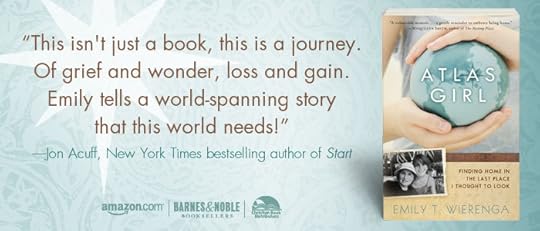 I’m giving away a FREE e-book to anyone who orders Atlas Girl. Just order HERE, and then head HERE to receive A House That God Built: 7 Essentials to Writing Inspirational Memoir – an absolutely FREE e-book co-authored by myself and editor/memoir teacher Mick Silva.
I’m giving away a FREE e-book to anyone who orders Atlas Girl. Just order HERE, and then head HERE to receive A House That God Built: 7 Essentials to Writing Inspirational Memoir – an absolutely FREE e-book co-authored by myself and editor/memoir teacher Mick Silva.  ALL proceeds from Atlas Girl will go towards a non-profit founded by TBM’s Joy Forney and myself, The Lulu Tree. The Lulu Tree is dedicated to preventing tomorrow’s orphans by equipping today’s mothers. It is a grassroots organization bringing healing and hope to women and children in the slums of Uganda through the arts, community, and the gospel.
ALL proceeds from Atlas Girl will go towards a non-profit founded by TBM’s Joy Forney and myself, The Lulu Tree. The Lulu Tree is dedicated to preventing tomorrow’s orphans by equipping today’s mothers. It is a grassroots organization bringing healing and hope to women and children in the slums of Uganda through the arts, community, and the gospel. 
August 4, 2014
The key
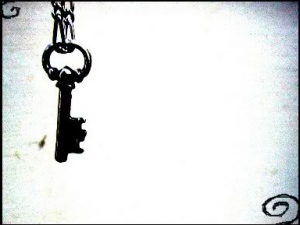
image courtesy of photo bucket.com
The key has been sitting here on the desk for a week now staring at me, wondering when I’m going to find some use for it. The truth is that I have no idea. No idea at all.
I found it a while back in a dresser drawer I was cleaning out. It was stuck in the back corner behind some pens, a stack of old pay stubs, and my high school ring. There’s no telling how long it had sat there, but it must have been a while. A very long while. Because try as I might, I couldn’t remember what it unlocked.
I’ve checked all the locks in the house, including the one on the shed in the backyard and the diary my daughter keeps. I’ve asked my wife if it happens to go to anything school-related and called my father to ask if it was his.
No all the way around.
It’s too big for a key to a shed or a mailbox. Not enough teeth to unlock a door. Not fancy enough to start a vehicle. Too real to fit a child’s toy.
So…what?
I don’t know. I figure I have two options here, both obvious. I can throw the key away and be done with it, thinking that if I haven’t needed it for longer than my memory allows, I likely won’t need it again. Or I can keep it. I’m leaning toward keeping it. I can’t throw the key away. Doing that will all but guarantee I will find whatever lock it fits, and that on the other side of the lock will be something I will likely need very badly.
There are a lot of people who say it’s the big moments in our lives that show us who we really are, warts and all. I’m not one of them. I think it’s the little moments that do that. Moments like this one, with me and my key.
So I stare at it and wonder. Is this all about my tendency to hang onto things and not let them go? Or is it about my subtle distrust in the shaky maxim that “everything work out fine in the end”?
Maybe it’s neither. Maybe all this proves is that I tend to think about some things a little more than I should. Regardless, it’s all very discombobulating. I feel like I have an answer to a question I don’t know how to ask.
Maybe that’s the point.
Maybe I need to consider this as something I’ve found something that I don’t really need right now but might need later. I think that alone is reason enough to hang onto it. I know this from experience.
I’ve often found some truth, some answer, only to lose it and have to go searching again. Most of the mistakes I make are ones I’ve made before and never learned from or, worse, thought I learned from but really didn’t. And there have been a lot of times I’ve been left wondering “Why in the world did I have to go through that?” only to say later on “Oh, now I understand. It was so I could handle this.” We find the keys to a lot of life’s problems long before we come across the locks.
That’s why we have to hang onto them and keep them safe. Why the struggles we have now can grow into future blessings. Because often the key to life lies more in remembering than learning.
July 31, 2014
“You just don’t look like a writer.”
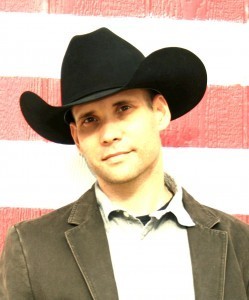 I stopped by the local bookstore over the weekend to speak with a friend and ask a favor—Would it be possible to schedule a book signing sometime in the next few months? We chatted a bit about the particulars and then he excused himself to fetch the store manager, leaving me alone at the front with a young lady working one of the cash registers.
I stopped by the local bookstore over the weekend to speak with a friend and ask a favor—Would it be possible to schedule a book signing sometime in the next few months? We chatted a bit about the particulars and then he excused himself to fetch the store manager, leaving me alone at the front with a young lady working one of the cash registers.
“So you wrote a book?” she asked me.
“I did. Written four, actually.” I said.
“What’s your last one about?”
“It’s about four people and how three of them cope with the untimely death of the other one.”
She turned up her nose. “That doesn’t sound very uplifting.”
“Oh, it is,” I told her. “In the end, they all receive what they had hoped to find but never expected–Redemption.”
“So, it’s like a real book.”
“Sure is, pages and everything.”
The cashier muttered a “Huh” and left our conversation at that, turning to adjust her bookstore smock and straighten the stickpin near her collar. Life Is Short, Read Much! it said. My friend still wasn’t back with the manager, so I passed the next few minutes perusing the new releases on the table beside me.
“You just don’t look like a writer,” girl offered, eyeing me from my boots to my hat.
“I don’t?” I asked her.
“No, not really.”
“What’s a writer look like?”
“Well,” she said, “like…not you.”
“Ah,” I answered, nodding as if her definition had cleared that up just fine.
“We had a writer in here last month,” she said. “You could tell. She has glasses and short hair and was dressed all in black. And she used big words. Really big words. I couldn’t understand much of what she said.”
“My hair’s short and I my hat’s black,” I tried. But that wasn’t enough.
“Don’t get me wrong,” she said. “You look just fine. For a regular guy, anyway. But even if you dressed like a writer, you wouldn’t act like one.”
“I wouldn’t?”
“No.”
“How’s a writer supposed to act?”
“Like…not you.”
Ah, again.
“I want to be a writer one day,” she said. “But I don’t think I can ever act like one. I’m not that smart.”
I was about to say something, but just then my friend returned with the manager in tow. We worked out a tentative date and time, and he even offered free coffee for the occasion. Who says writing doesn’t have its own perks?
The cashier was gone when we were finished, her shift over for the day. That was a shame. I wouldn’t have minded spending a few more minutes with her, if only to explain why what she said was simply not so.
Because she was wrong, you know. Wrong about most everything she had said. I consider myself a guy who writes rather than a writer who’s a guy, for one. Big difference there. It means that if the bottom ever falls out or the well ever runs dry, I’ll still be me.
But more than that, she was wrong about how a writer is supposed to dress or act or talk. Very wrong.
There’s a grave misperception that writing must incorporate some sort of rules of eligibility.
You must have a college degree, some say. Or you have to be smart. You have to display a melancholic disposition or be a tortured soul. You have to be this old or this young.
Not so, I say.
True: not everyone can be a writer.
Also true: a writer can be anyone.
And that’s something important to keep in mind the next time someone says you can’t.
July 28, 2014
Best friends
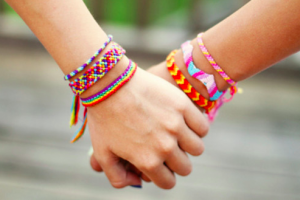 Every morning on my way to work the road takes me up a hill that offers what may well be the best possible view of our town. It’s a scene I never get tired of appreciating, though for the past week or so I haven’t taken the time to turn my head and do so. Because that’s just about the time Randy crests that same hill in the opposite direction, and I want to see if he waves.
Every morning on my way to work the road takes me up a hill that offers what may well be the best possible view of our town. It’s a scene I never get tired of appreciating, though for the past week or so I haven’t taken the time to turn my head and do so. Because that’s just about the time Randy crests that same hill in the opposite direction, and I want to see if he waves.
We worked together in my previous job, suffering alongside one another through shift work and factory life. We were close in the way guys are, which means we’d laugh share our gripes and make fun of the other’s favorite sports team and punch each other in the arm. Male bonding is a complicated thing.
When I quit to take my current job, we kept in touch through phone calls and emails. A few months later, the phone calls stopped. The emails stopped soon thereafter.
He was laid off from the factory about a year ago and took a job that brought him my way every morning. I’d pass his jacked-up Chevy along the road and we’d both throw our hands up and wave. That’s the way it was for a while, our once close friendship reduced to a two second mention of the hand every Monday through Friday.
Then last Monday, I was fiddling with the radio station and he snuck up on me. No wave.
The next day, he was on his cell phone. No wave again. The day after that, I sneezed. Another no-wave.
There were no complications the day after that. We saw each other coming, my radio was good, there was no cell phone, and my nose was clear.
We passed each other as strangers.
I was thinking about all of this yesterday as I listened to a message on the answering machine. Thirty-seven seconds of observations that covered everything from lunch to clothing to the newest must-have technological doodad. I played it twice to catch it all and was impressed to notice that it had all seemed to be done in a single breath. The caller identified neither herself nor to whom the message was for, but her tinny, high-pitched voice could only mean it was one of my daughter’s classmates.
Her rambling continued, brushing up on the latest Suite Life episode and some juicy gossip. Satisfied that all bases had been covered, she then said goodbye, but not before offering this one promise:
“We’re going to be best friends forever, I just know it.”
I smiled to myself at those words and saved them on the machine for my daughter to hear later. It may not have been the most important message of the day on our telephone, but it was without a doubt the most interesting.
Such phone calls have become pretty regular in our house in the weeks since school has let out. My daughter is quite the social butterfly, a facet of her personality she did not inherit from her father. As such, she has a steady influx of friends who seem to have our phone number on speed dial.
But the girl who left a message? She’s different.
Her and my daughter have been classmates since kindergarten. There have been sleepovers, play dates, birthday parties, and even an exchange of gifts every Christmas. Given that both of their names begin with M, they are known by students and faculty simply as M & M. Where you see one, you will see the other. To say they’re close would be an understatement.
At twelve, they’ve known each other for more than half of their lives and about three quarters of their memory. It stands to reason that to them, it will always be such. There are no doubts and no hesitations. Life is simple, like one long and unbroken line that stretches on forever.
That’s how it is when you’re young. Everything seems so certain because there’s so much you don’t know. And a friend is a friend forever.
Maybe M & M are right. Maybe sixth grade will turn into high school and then college and then, one day, bridesmaids. I hope so.
One of the harshest lessons we must learn is that the tides of time will wash some into our lives and then out again. There are those in our lives destined to remain on our shores, and others meant only to find rest there before sailing upon other seas.
But rather than mourn the many those tides take away, we should rejoice in the few left behind. For they are the ones who walk alongside us.
July 24, 2014
Looking for the good
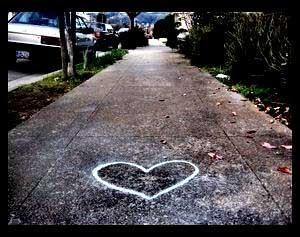
Photo courtesy of photobucket.com
I spotted it while waiting for my family to finish their weekly shopping outside of a local department store, scrawled into the pavement next to a garbage can with what appeared to be pink sidewalk chalk. With nothing else to occupy my time, I bent down to see what had been written.
There’s lots more, it said. Look! A small picture of a flower had been drawn beside it.
I looked up and back into the crowd of people both going in and coming out. I hated shopping, and especially so at that particular shopping center. As a boy, it was once a field full of trees and tall grass and deer. Now, it was a paved city in and of itself, with a different sort of wild animals walking upon. The march of progress often takes its toll on beauty and leaves in its wake an ugliness that is glossed over with words like “convenience” and “revenue.”
I waved to a friend coming into the store. Said hello to another leaving. A third who seemed confused as to which way he was going began a conversation. That’s when my eyes wandered to the spot where his right foot was planted onto the sidewalk.
Another picture. This one of a dog’s face. Written below it—There’s lots more. Look!
We said our goodbyes and I reached for my cell phone to check on the progress of my wife and children inside. I was informed that I had plenty of time to look around. I said I was going to do just that.
I looked back to the garbage can, then to the spot where my friend stood. The result was a straight line approximately ten feet long. I walked a little farther, studying the ground.
Another! This one a tree whose roots said, There’s lots more. Look!
I paced off ten more steps and saw nothing. Then, next to a storm drain, I saw the outline of a puffy pink cloud.
There’s lots more. Look!
I did. Past the Michaels store and Bed Bath & Beyond. Past the hair salon the Hallmark, all the way to the end of the Books-a-Million.
There were pink birds, pink suns, and pink balloons. Pink people with gigantic smiley faces and pink snowmen. There were even pink angels.
They ended just as suddenly as they had begun, at the door of the bookstore. It was a pink book. Written in the pages was There’s lots more. Look!
I did. I didn’t find anything.
But I did turn around and look at how far I walked. A hundred yards, at least. One hundred yards spent not staring at the bad, but looking for the good. And I thought that maybe, just maybe, that was all that mattered.
We’ve heard a lot about change in the past couple of years, about how much we need it and how necessary it is. I can agree with that. But I don’t think we can do much about a lot of things in this world. I think we can do a lot of things about us, though. Maybe that’s how real change happens. Maybe we change the world not by changing governments, but by changing ourselves.
And we can start by not wallowing in the ugly, but looking for the beautiful.
Because there’s lots more. We just have to look.
July 21, 2014
In the name of Jayzus!

image courtesy of photobucket.com
I was winning.
Nothing too strange about that. The backyard baseball games with my son are usually close on purpose, which is much more important than who wins or loses. Sometimes I let him win in an effort to teach him how to be a gracious victor. And sometimes I makes sure he loses, because being a gracious failure is equally important. He’s going to face both triumph and setback in life. Best to teach him about both now, when he’s young.
This time, though, I was going to leave the end result to him. He would win or lose on his own, and it all came down to one pitch.
So.
Tie game, two outs, last inning. A homerun (in our backyard, homeruns are anything that passes the maple tree in the air) wins. Anything else, and he’d have to wait until the next evening to try again. Mother and sister were on the porch, watching and cheering. He took his stance, glared, and tapped on the rock we used for home plate.
I had already started my windup when he called time. Rather than take another practice swing or spit, he raised his hands in the air, looked to the heavens, and said, “In the name of Jayzus, lemme hit a homer!”
Laughter from the porch. I wrinkled my brow. Said, “What are you doing?”
“Heard it on the radio,” he told me. “Preacher said God gives me anythin’ if I ask in the name of Jayzus.”
Oh. Jayzus = Jesus. Okay then.
He stepped back in, tapped the bat on the rock. Glared. I threw. He hit.
Over the maple tree. Homerun.
That’s how it started.
Since then, the name of Jayzus has been bandied about quite often in our house. I heard it the next evening when my son lost the Lego spaceship he’d built—“In the name of Jayzus, come back to me!” Heard it again a few hours later—“In the name of Jayzus, save me from the bathtub!”
And then this morning—“In the name of Jayzus, let me at a Pop-Tart and not eggs!”
Comical, yes. And I suppose it’s even more comical that in all those instances, things worked out just the way he wanted. He did find his Lego spaceship. And since he’d stayed indoors all day because it was about a million degrees outside, we allowed him to forgo his bath. And we were out of eggs this morning, out of everything really. Except for Pop-Tarts.
My son thinks he has quite a thing going on here. He believes he’s just stumbled on the secret to life, that he’s won some sort of supernatural lottery. You should see him strutting around.
Me, I say nothing. Sometimes it’s best to let these things play out on their own. Sticking my Daddy Nose into it, telling him he’s really kind of wrong about the whole thing, won’t work. The big things in life tend to be the ones you have to learn on your own.
Besides, I really don’t think I’m qualified to add any wisdom. Not with this. Because I pretty much do the same thing.
I use God as a rabbit’s foot. I tend to keep him around in my pocket and pull Him out whenever there’s trouble. Not so much when I lose a Lego spaceship, but definitely when I want something bad to go away. Or when I want something good to get a little closer.
Or just when I want.
Truth is, I’m no better than my son.
Maybe what’s best is that I talk to him about this after all. Just be honest and say that yes, he’s doing something wrong, but so am I. And maybe we can figure out this thing together.
Because God wants us all to love Him for who He is, not for what He can give.
July 17, 2014
Starting over
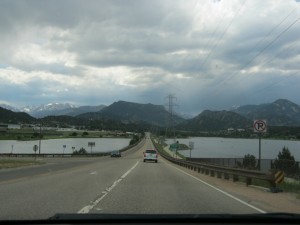
image courtesy of photobucket.com
I last saw Joey five years ago, just before he started over. He was a mess back then. Thin and shaky and unkempt. A shadow of the man who was once a boy I called a friend. He was still sick. Still “fighting the bear,” as he called it. He was in the pit, yes. But at least he was looking up toward the light. For the first time in nearly ten years, he was smiling.
His life had followed the same downward spiral that more and more people in this area had taken before him. Booze had turned to pills and pills to meth. He had no idea that the foggy paradise he thought he’d found was in reality a grave that was being dug around him. I’m not sure what finally managed to take hold of him as he tottered on the edge of an eventual overdose, whether it was his wife and kids finally leaving him or getting fired from his job. Maybe it was something else. Maybe it was God. Whatever it was, it worked. That Something grabbed hold of Joey and refused to let go.
He entered counseling. AA and NA and nearly every other A you could imagine. Joey made his peace and asked for forgiveness and learned to rely on a Higher Power. The road to healing was a slow process and a brutal one, but then the road to all good things usually is.
“I need to start over,” he told me that day.
He was moving. Away from the temptations that had nearly killed him and had cost him so much. West. Colorado maybe, or maybe Montana. Joey had always loved the mountains, and the Rockies seemed the place to go.
“You know how the mountains here are smooth?” he asked me. “It’s because they’re old. They’ve been worn down by time. The Rockies aren’t like that. They’re still sharp. I’m tired of feeling worn. I want to be sharp again.”
So he left, taking that winding path West that so many once trod in search of freedom and a better life. I understood. We all needed to start over sometimes. And we all yearned for a new place to do it, a place where our sins wouldn’t follow and we could be judged by who we’ve become rather than who we once were.
I told him to keep in touch and he did. There were emails and phone calls and even an old fashioned letter or two. Doing good, he said. Weather’s perfect, he said. Joey found work and a home and bought a dog to keep him company, a Siberian husky with one blue eye and one brown one. He named him Crackhead.
The Rockies soon lost their appeal, though. As it turned out, there was just as much temptation out West as there had been down South. Joey wrote to say he was heading for Alaska to find work on a fishing boat. He’d always wanted to do that.
The years went on. Emails and phone calls stopped. I thought nothing of it. Time and life often get in the way of friendships like currents that push ships apart and send them on separate courses upon the same ocean. I was here and he was there, and somehow that knowing alone made things okay.
I was catching up with an old friend last week when Joey’s name came up. I wondered aloud whatever had happened to him.
“You didn’t hear?” my friend asked. “Joey died a year ago.”
I didn’t want to believe it, but it was true. He’d heard the news from Joey’s mother just after it had happened. They’d found him in his apartment. The needle was still in his arm.
I thought about Joey today. No reason, really. Sometimes things just pop into your head, memories that you haven’t quite sorted out and found reason in yet.
All Joey wanted was a chance to start over. To leave his problems behind. Most addicts are like that, I think. They’re prisoners unto themselves, chained by a desire that goes beyond want and straight into need. They hate what they do as much as the people who love them hate it. They hate it more.
But there is a catch to starting over, and it’s this—no matter where we go, we always take ourselves with us. And not just our hopes and our dreams. Our frailties and our wounds, too.
July 15, 2014
My daughter’s fingernails
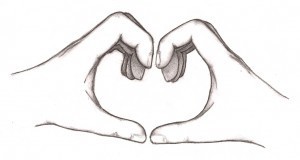
image courtesy of photobucket.clm
Buy all the books you want about how to raise a child into a fully functioning and responsible adult, and you’ll be wasting your money. I know that’s a pretty broad statement, but I stand by it. Because it doesn’t matter what Ph.D. says what or how much Biblical wisdom people can give you, in the end you learn by experience. This I know.
I know this, too—you learn to pick your battles with your children. Which means making them earn an allowance to buy the toy they desperately want rather than simply handing over the money, but treating them to a Slurpee when they pine for one as you drive by the 7-11. Simple enough. At least, it usually has been.
But then came my daughter’s fingernails.
Coffey women tend to have the reputation of being both ladylike and tomboyish, depending upon which the situation warrants. Which means my daughter will strut around all day long giving tea parties in her Sunday finest, only to hit me in the head with a pillow and want me to wrestle. I honor both. It’s good for girls to have tea parties. Good for them to know how to scrap, too.
The problem was the fingernails. Good for pouring tea and wearing dresses. Bad for rolling around on the floor with daddy. So when our impromptu grudge match the other night resulted in me looking as if I’d been attacked by a Komodo dragon, I called time out and grabbed the clippers.
“Time to cut your nails,” I said.
My daughter didn’t protest. Not yet. She simply stood there and stared, wondering how she could explain what she needed to.
“Come on. Sit. It’ll just take a minute.”
More staring.
She sat down with the sort of thump that would one day evolve into something that would seriously frighten her husband. When I took her hand, it was a fist.
“What’s the matter?” I asked her.
“I don’t want you to cut my nails.”
“Well, unless you want me to go upstairs and get the boxing gloves, I’m gonna have to.”
“I don’t want you to cut my nails.”
The thought occurred to me that this was some sort of game, the object of which was for the both of us to see if I could get her fist open. I tried. She didn’t like it.
“Okay,” I said. “Why don’t you want me to cut your nails? Girls cut their nails. It’s popular.”
“That’s not why.”
I stared, waiting.
“If you cut my nails,” she said, “I won’t know if I had a good day or not.”
What?
She said she would explain, but I had to put the clippers down first. I did. Then my daughter raised her hands palm up and fingers wide, and told me the story of her day.
The bits of brown and green on her nails were from her work in the garden that morning. A smidge of white paint was on her thumb from the picture she made after breakfast. She pointed out a spot on her pinky that seemed indented, put there by a stubborn drawer she’d helped her brother open. An orange stain from that afternoon’s popsicle. And though the evidence was scant, she swore there was a spot on the ring finger of her right hand where a firefly had landed and made her smile.
“How am I supposed to remember all that,” she asked, “if you cut my memories off?”
How indeed.
Like I said, you have to pick your battles as a parent. You have to learn when to raise and when to fold. I folded. A little pain on my part would be a good enough trade to keep her memories safe.
I wonder a lot whether I’m living the way I should be. Life can get so complicated when you’re an adult. I try to make sure I do more good than bad, but it’s hard to keep track of it all.
Which is why I’ve been paying attention to my own fingernails lately. It’s something I don’t normally do but maybe should do more of. Because I know if there’s evidence there that I’ve worked and created, helped and smiled, then I’ve had a good day.
Then I’m living right.
July 10, 2014
Wrong number
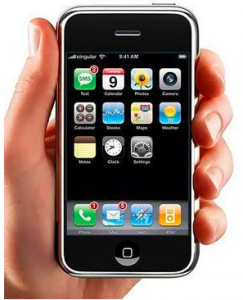
image courtesy of photo bucket.com
I said “Stupid phone,” but what I really meant to say was “Stupid me.” I tried the number again and remembered the old adage about the definition of insanity being to try the same thing over and over again and expecting a different result.
Same result—“…the number you are trying to reach is not in service…”
Grr.
I hung up the phone and stared at the numbers I had scrawled on a old receipt three days earlier, just after I’d met Chris coming out of the grocery store. Hadn’t seen him in years, and maybe not since our graduation. We stood there and talked for a half an hour about everything from jobs to family, then said our goodbyes and promised to keep in touch.
“Let’s go fishing Friday evening,” he said. “Let me give you my number.”
The past few weeks had been a mess of things to do that hadn’t been done, of stress and worry and fretting. I’d ended plenty of prayers over that time with, “And Lord, if You could toss a little happiness my way, that would be great. Amen.”
I waited and prayed. And when that didn’t work, I prayed and waited.
I was still doing both when I ran into Chris at the store, and I thought Yes, finally my answer! Fishing. Yes. Fishing was exactly what I needed to get me out of my slump. One afternoon by a creek in the mountains, with nothing but sunshine and water and company.
But then I tried calling him and…well, you know.
By Thursday, I’d all but given up. I tried the number twice more that morning and got the same mechanical voice. By Friday evening, I had balled up the number and tossed it into the trash. But I did keep praying. Not because I was a devoted saint, but because I didn’t have much else to do.
Then came Friday evening. Still in the dumps, still praying for relief. It was a typical evening in the Coffey house—a nice dinner followed by some time outside. But something happened to me between the kickball game and the bug chase and the popsicles on the front porch. Something unexpected and wonderful.
My heart started to beat again.
One minute I was rolling a ball toward my daughter and then trying to chase her down before she reached home plate, and the next I was laughing again.
And one minute I was eating an orange popsicle, and the next I was sighing with contentment.
I couldn’t explain it then. Can’t explain it now.
Maybe it was just the chance to enjoy a normal night in the summertime, to enjoy the sun and the company and just let go.
Maybe it was the opportunity to allow myself to forget the pressures of life and for one glorious moment become a child again.
Maybe.
But maybe it was more than that.
Chris called me the next morning wondering why I hadn’t gotten back with him. I went through the story about the mechanical voice. Turned out I had the numbers wrong.
I’d been calling the wrong number all week.
It felt like I’d had the wrong number to God all week, too. I had kept dialing and got some angelic voice that said all lines were busy or, worse, that the number had been disconnected.
That wasn’t the first time I’d felt that way, of course. If I could somehow tally the number of prayers I’ve said over my life and put them up against how many of them were answered the way I wanted them, the average wouldn’t be very good. That wasn’t God’s fault, though. It was mine. I’d been asking for the wrong things.
But this one was different. All I’d asked for was some happiness. How could there possibly be anything wrong with that? After all, God wants us to be happy.
Yes?
Yes. But what I forgot was the very thing we all forget sometimes. The happiness we seek isn’t always the happiness God wants us to have. His version of it is better. More secure and more lasting. I think that’s the real reason why I ended up missing the fish but catching an evening with my family.
Because God often will not give us our happiness. He’d rather give us His.
July 7, 2014
Carnival world
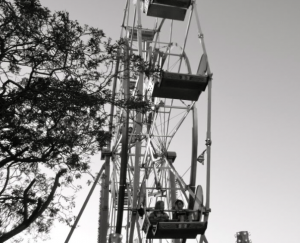
image courtesy of photo bucket.com
Nothing cured the torpid state of a small town quite like a carnival, and our small town was no different. It was the event of the summer here, one that is part high school reunion, part gossip convention, and all fun.
Every year a few hundred souls gathered for three nights in the parking lot of the Old Schoolhouse Restaurant to ride and play and eat, knowing that much of the proceeds will go to the local fire department.
Ahead of me were the rides. The slide and the Ferris wheel and the swings and a jumble of semi-legit games of carnie skill. Behind me, around the corner, were fire truck hangars filled with hungry people searching for dinner in the form of barbecued chicken.
I was appropriately between the two, straddling the same line at the carnival that I tended to straddle in life, the one between play-and-scream and rest-and-gawk. It was a precarious spot, and I often tried to play both sides. Which is why I was both nodding in agreement with the man beside me who says people really should grow up and licking cotton candy off the corner of my mouth.
To me, the carnival was all about catching up and touching base. There were people I see only at the carnival, mountain folk who somehow summoned the strength to come down from the hills and partake in some revelry. But they never lingered. Town life was too close to city life for their comfort.
To my kids, though, the carnival was all about the rides. And there were plenty of rides. Slides and swings. Tea cups and moonwalks. And the granddaddy of them all, the Ferris wheel. Both my son and my daughter erupted in spasms of glee at the sight, a veritable smorgasbord of hyperactive indulgence.
“Can we ride, Daddy?” they asked.
Yes.
Because if there is anything I knew for sure in this complicated world, it was that a body could learn a lot about living from carnival rides.
For instance.
The swings were first. Rusty and worn from endless turns in the summer heat, but still perfectly tuned for their assigned purpose: to spin people around and around through the air at varying speeds. My kids whizzed and zoomed, waving their tiny arms as they passed. Fun, yes. And also valuable later on. Because sometimes in life they will feel as though they’re going around in circles, but that’s no reason to feel frustrated. You can still laugh and wave.
The tea cups were next, which were in amazing shape considering the fact that I found “Pam Luvs Doug 6/9/68” carved into the engine cover. I wasn’t worried, though. Tea cups don’t spin around in a circle ten feet in the air, they jerk and whirl close to the ground. As I watched physics inch my children closer together with each turn of the gears, I found another future lesson for them to tuck away: when life begins to pull and turn, it’s best to stick close to the ones you love.
Fifteen minutes in the Moon Walk proved yet another point—there is an inherent desire within each of us to soar. To break the bonds of both gravity and common sense and rise just a bit higher than the rest, if only for a moment. And though we are earthbound and destined to spend our share of time in the dirt and mud, those precious few moments in the sky are well worth the effort.
From there we made our way to the slide, a gigantic monstrosity of molded plastic that sat a good two stories off the ground. The line was long and the drop was steep, but both children refused to budge. When they climbed those rickety steps and flew down upon those moldy burlap sacks, they screamed and I smiled. Them because they had overcome their fear to magnificent results. Me because I knew life was made for the bold rather than the timid.
The Ferris wheel was the best ride and therefore reserved for last. The flight down the slide had emboldened them to tackle the even bigger ride to the point where they requested a go with just the two of them minus mom and dad.
And things went fine, too. Until the ride stopped with them perched at the top. Flashes of panicky children and flaying limbs shot through my mind but were disproved by the sight in above me.
Rather than terror, my kids were in awe.
Spellbound by the sight of the crowd below and the mountains ahead. Of robins and blue jays flitting past their heads.
I didn’t have to teach them that lesson. They taught me. That sometimes, many times, life can become a bit dull around the edges. The view below can seem drab and worn.
Which is when you need to look up instead of down. Over instead of around. Because life is not only a matter of attitude. It’s a matter of perspective as well.



